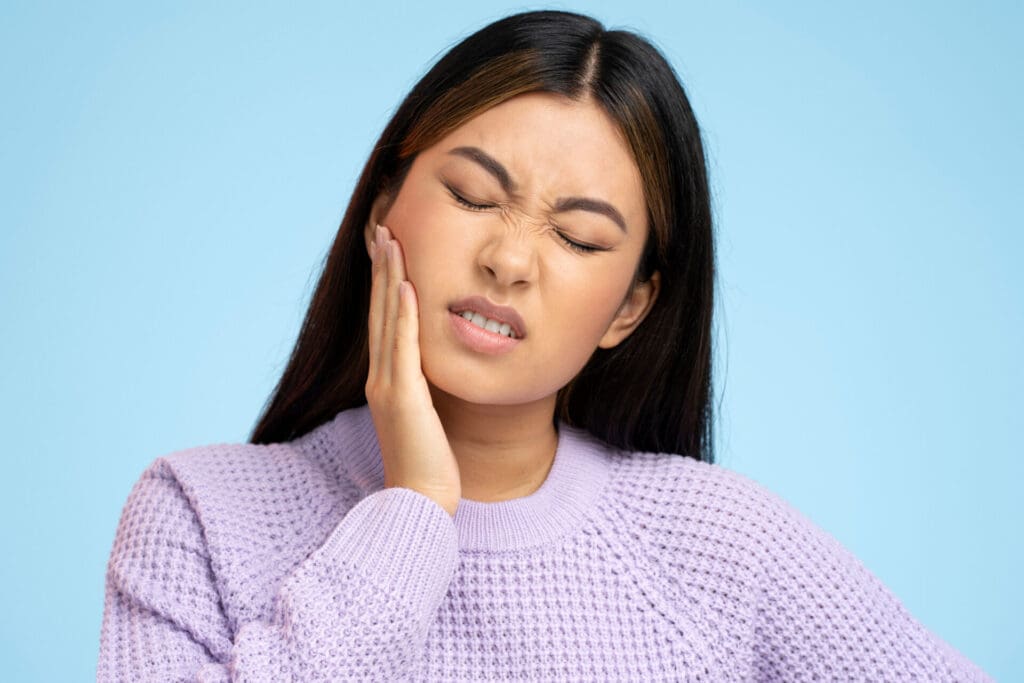Ah, the triumphant feeling of leaving the dentist’s office with a healthy grin and newly restored tooth! A sudden headache taking center stage is not welcome. Don’t worry, because in this blog post, we’re diving deep into the world of headaches after the dentist. Here, we will explore the ins and outs of post-dental procedure headaches and arm you with help you need.
The Science Behind Headaches
Before we get down to the nitty gritty, let’s unravel the science behind headaches. Throbbing heads can spring from various sources, like stress, tension, sinus issues, and even the weather.
Headaches occur when pain nerves called nociceptors react to triggers and send signals along the trigeminal nerve to the thalamus. The thalamus functions as the brain’s central hub for perceiving pain sensations originating from various regions of the body.
The most common headache triggers are stress, medication consumption, or specific foods or odors. When it comes to the world of post-dental headaches, the star player is often stress. Stress can tighten your jaw muscles like a vice, setting off a symphony of discomfort in your head.
What Dental Work Causes Headaches?
Headaches can be caused from the most minor dental work such as fillings, to more major dental work like crowns and root canals. At Enamel Dental, your local dentist in Penticton, we prioritise effective communication and stress-management. We want you to experience stress-free, headache-free dental visits.
– Fillings: The stress from the filling procedure or the change in your bite (your teeth’s alignment when they come together) can sometimes trigger headaches.
– Crowns and Bridges: As your mouth is adapting to the new crown or bridge or change in your bite, your head might not be thrilled. Crowns and bridges can cause stress to the mouth, and therefore headaches.
– Root Canals: Root canals can be seen as a major dental procedure, and can cause some side effects. The inflammation post-procedure might just be the trigger for a headache.
If you have a fear of the dentist and require IV sedation or oral sedation to reduce stress during your dental visit, read our blog post on the topic here.

What Do Headaches After Dental Work Mean?
You’ve conquered the dentist’s chair, but now you’re wrestling with a headache. What’s the message your body is trying to deliver?
1. Your Jaw is Unhappy: Your jaw might be clenching and grinding in protest to dental work, and that can radiate pain to your head.
2. Bite Woes: A shift in your bite post-dental work, could feel like a tiny earthquake in your mouth. Your jaw muscles might be working overtime to adapt, leading to a headache uprising.
3. Inflammation: Some dental procedures can cause inflammation in your mouth, and your body’s response might be a headache. It’s like your body’s fire alarm going off.
How to Get Rid of Headaches?
The professionals who deal with teeth day in and day out are the best equipped to solve your headaches caused by dental work or stress in the mouth! If your headaches are performing an encore after every dental visit, it’s time to talk to the experts. Here’s some dental solutions to headaches:
1. Adjustments: Your dentist can fine-tune your dental work to ensure your bite is in harmony. A tiny tweak can make all the difference.
2. Mouthguard Magic: For those stress-induced clenching and grinding sessions, a custom mouthguard might be your ticket to uninterrupted slumber and headache-free days. Contact us to book your appointment and stop grinding today!
3. Breathe Easy: Sometimes, proper breathing techniques can alleviate stress and jaw tension. Calm communication and skillful breathing exercises can ease your mind.

Finding Dentists in Penticton
If you’re in the scenic community of Penticton and you’re constantly experiencing headaches, we are accepting new patients. At Enamel Dental, our friendly team offers expert dental work and focuses on making you comfortable during your visit.
Some dental work can cause headaches, but with knowledge and expertise, you and your dentist can handle this discomfort confidently. Remember, it’s not just about popping painkillers; it’s about understanding your body’s cues and enlisting the expertise of dentists to restore harmony to your dental universe.

